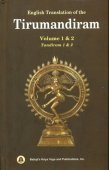Spiritual knowledge: 2 definitions
Introduction:
Spiritual knowledge means something in Hinduism, Sanskrit. If you want to know the exact meaning, history, etymology or English translation of this term then check out the descriptions on this page. Add your comment or reference to a book if you want to contribute to this summary article.
In Hinduism
Yoga (school of philosophy)
Source: ORA: Amanaska (king of all yogas): A Critical Edition and Annotated Translation by Jason BirchSpiritual Knowledge is denoted by the Sanskrit term Adhyātma-Vidyā, according to the Haṭhapradīpikā of Svātmārāma: an influential 15th-century Sanskrit manual on Hatha-Yoga dealing with techniques to channel one’s vital energy.—Accordingly, while discussing methods for conquering the mind: “Acquiring spiritual knowledge (adhyātma-vidyā), associating with the wise, abandoning habitual tendencies and stopping the movement of the breath; according to tradition, [all] these methods are effective in conquering the mind. The [mind] is quickly overcome by these [methods of restraint] like the dust of the earth by streams [of water]”.

Yoga is originally considered a branch of Hindu philosophy (astika), but both ancient and modern Yoga combine the physical, mental and spiritual. Yoga teaches various physical techniques also known as āsanas (postures), used for various purposes (eg., meditation, contemplation, relaxation).
General definition (in Hinduism)
Source: Shodhganga: Elements of Art and Architecture in the Trtiyakhanda of the Visnudharmottarapurana (h)Spiritual Knowledge can be developed and improved in Hindu temples which ultimately serve to connect man and the divine.—The temple is a place where the devotees can get the environment to connect themselves with their lords. The Hindu temple consists of all the cosmic elements from fire to water, images of nature to deities, Gods remain feminine to masculine, kāma to artha, fleeting sounds and incense smells etc. by which one can celebrate life. Stella Kramrisch, the author of The Hindu Temple also keeps her view point in the same spirit. The Hindu temples are designed for the purpose of making connection between man and the divine and to help the people to develop their spiritual knowledge and truth.
See also (Relevant definitions)
Partial matches: Knowledge, Spiritual.
Full-text (+167): Brahmayoga, Atmavidya, Paramartha, Atmadarshana, Jivanmukti, Jnanamula, Anatmajna, Brahmavedin, Jnananishtha, Guruparampara, Atmajnana, Akshetrajna, Kshetravid, Akshetravid, Jnanakanda, Adhyatma, Paramarthika, Brahmavat, Aprabodha, Erdegaltal.
Relevant text
Search found 99 books and stories containing Spiritual knowledge; (plurals include: Spiritual knowledges). You can also click to the full overview containing English textual excerpts. Below are direct links for the most relevant articles:
Chaitanya Bhagavata (by Bhumipati Dāsa)
Verse 1.10.5 < [Chapter 10 - Marriage with Śrī Lakṣmīpriyā]
Verse 2.6.25 < [Chapter 6 - The Lord’s Meeting with Advaita Ācārya]
Verse 1.11.1 < [Chapter 11 - Meeting with Śrī Īśvara Purī]
Yoga Vasistha [English], Volume 1-4 (by Vihari-Lala Mitra)
Chapter LXXXIII - Story of the miserly kirata < [Book VI - Nirvana prakarana part 1 (nirvana prakarana)]
Chapter CXXIII - On the difference between the knowing and unknowing < [Book VI - Nirvana prakarana part 1 (nirvana prakarana)]
Chapter XXI - What constitutes true knowledge < [Book VII - Nirvana prakarana part 2 (nirvana prakarana)]
Yoga-sutras (with Vyasa and Vachaspati Mishra) (by Rama Prasada)
Puranic encyclopaedia (by Vettam Mani)
The Right Approach to Religion < [July 1960]
The Purana – Samhita < [October – December, 2004]
A Legend < [July – September, 2003]
Keshidhvaja and Khandikya < [Sixth Section]
Related products


